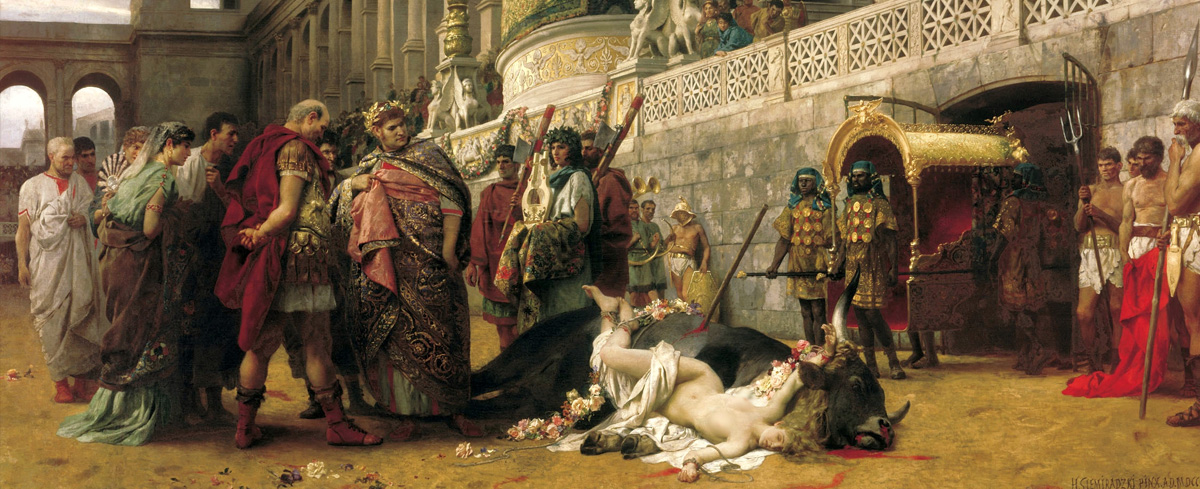This has the sharp edge of poignant relevance painted all over it:
Now let’s set the record straight. There’s no argument over the choice between peace and war, but there’s only one guaranteed way you can have peace—and you can have it in the next second—surrender. Admittedly, there’s a risk in any course we follow other than this, but every lesson of history tells us that the greater risk lies in appeasement, and this is the specter our well-meaning liberal friends refuse to face—that their policy of accommodation is appeasement, and it gives no choice between peace and war, only between fight or surrender. If we continue to accommodate, continue to back and retreat, eventually we have to face the final demand—the ultimatum.
And what then—when Nikita Khrushchev has told his people he knows what our answer will be? He has told them that we’re retreating under the pressure of the Cold War, and someday when the time comes to deliver the final ultimatum, our surrender will be voluntary, because by that time we will have been weakened from within spiritually, morally, and economically. He believes this because from our side he’s heard voices pleading for “peace at any price” or “better Red than dead,” or as one commentator put it, he’d rather “live on his knees than die on his feet.”
And therein lies the road to war, because those voices don’t speak for the rest of us. You and I know and do not believe that life is so dear and peace so sweet as to be purchased at the price of chains and slavery. If nothing in life is worth dying for, when did this begin—just in the face of this enemy? Or should Moses have told the children of Israel to live in slavery under the pharaohs? Should Christ have refused the cross? Should the patriots at Concord Bridge have thrown down their guns and refused to fire the shot heard ’round the world?
The martyrs of history were not fools, and our honoured dead who gave their lives to stop the advance of the Nazis didn’t die in vain. Where, then, is the road to peace? Well it’s a simple answer after all. You and I have the courage to say to our enemies, “There is a price we will not pay.” “There is a point beyond which they must not advance.” And this—this is the meaning in the phrase of Barry Goldwater’s “peace through strength.” Winston Churchill said, “The destiny of man is not measured by material computations. When great forces are on the move in the world, we learn we’re spirits—not animals.” And he said, “There’s something going on in time and space, and beyond time and space, which, whether we like it or not, spells duty.”
You and I have a rendezvous with destiny.
We’ll preserve for our children this, the last best hope of man on earth, or we’ll sentence them to take the last step into a thousand years of darkness.[note]Reagan, R. 1964 ‘A time for Choosing’, PDF transcript[/note]
The political context:
Barry Goldwater was a Republican Presidential nominee. In 1964 Reagan spoke up in support of that nomination. Reagan was a Democrat turned Republican.
The assassination of John F. Kennedy in 1963, left Lyndon Johnson, a Democrat, as U.S President. LBJ won the 1964 election and began an escalation of America’s involvement in Vietnam, effectively turning a civil war into an international conflict, with the complete backing of his party and apparently that of the United States congress.
Front-line combat involving the American, Australian and New Zealand military, in The Vietnam War began in 1964. This was the direct result of the ‘Gulf of Tonkin Resolution’. Democrat support for Vietnam changed over time. In 1966, William Fulbright, , wrote that he regretted backing the resolution (Arrogance of Power, p.52). An interesting side-note: Fulbright also pointed out that Australian and New Zealand military involvement was only a ”token” gesture (ibid, p.110).
One of the key things to note about Reagan’s speech is that it’s not directed at Vietnam, but at Communism, specifically the Soviets. The broader international context of the Vietnam War is the Cold War. It is important to view one in the light of the other.
Whether you stand on the left, the right, up or down, it’s difficult, if not impossible to argue against the historical and contemporary relevance of Reagan’s speech. I’m convinced that Goldwater would have stood fast against threats to the West, however, I wonder if there would have been the same kind of escalation of the Vietnam conflict, under a Barry Goldwater presidency.
What Reagan’s speech reminds us of is the fact that appeasement only benefits those who are demanding to be appeased. Those demands usually hide true intent behind a veil of benevolence. So much so, that any opposition or refusal to meet those demands is viewed as unnecessary, hateful and counter-productive. Reagan reminds us of the lesson within Neville Chamberlain’s ”peace in our time”. Something which, at the time, stood out as a so-called justification for the decade long charge of ”warmongering” howled out loud against Winston Churchill, and his consistent warnings about the ‘rise of National Socialism in the 1930’s’ (Churchill: A life, Martin Gilbert,1992).
Today, Reagan’s words speak to a whole new generation of people who are looking down the barrel of new cultural laws. Laws imposed on them by the Radical Left and its cult of modern liberalism. Like those living throughout the 1930’s, this generation has a choice to make. May we not do as they did and face the consequences and suffering that they had to fight against and endure.
Reagan is right: “The greater risk lies in appeasement; surrender. We’ll [either] preserve for our children this, the last best hope of man on earth, or we’ll sentence them to take the last step into a thousand years of darkness.”
Now is the time of choosing.





















